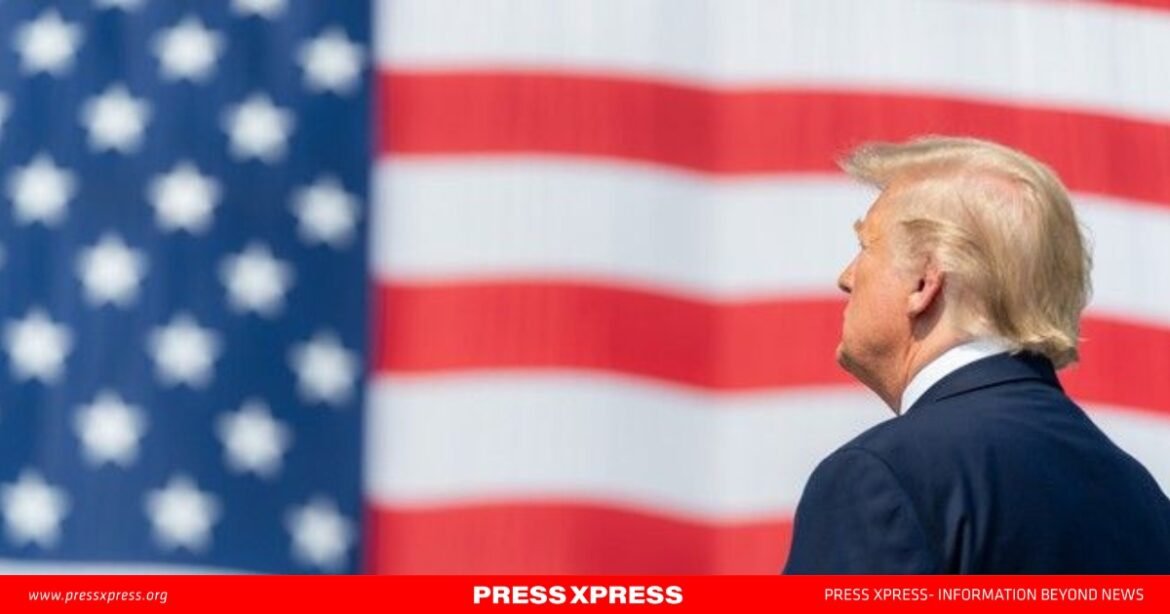Key Highlights:
- Immigration Overhaul: Trump plans to use executive orders to tighten immigration policies, including potential deportations under the Alien Enemies Act, requiring Congressional approval for a declaration of war
- Climate and Trade Reversals: Likely withdrawal from the Paris Climate Agreement and WHO, alongside renegotiating trade deals, reflect Trump’s America First agenda
- Pardons and Legal Challenges: Pardoning January 6 rioters and navigating legal hurdles for controversial orders will define Trump’s assertive governance style
Donald Trump’s return to the presidency marks a pivotal moment in U.S. political history. As the 47th president and the first convicted felon to hold the office, his approach to governance is expected to be as unorthodox and decisive as his previous tenure. With executive orders as his primary tool, Trump is poised to implement sweeping changes across various sectors, leveraging the unique advantages of this powerful presidential instrument.
The Power of Executive Orders
Executive orders allow the president to direct federal agencies, implement policy, and manage government operations without requiring Congressional approval. Historically, presidents have used this tool to quickly enact their agendas. Trump, known for his prolific use of executive orders during his first term, is likely to rely heavily on them once again, particularly given his agenda to reverse key decisions made by his predecessors.
Unlike legislative measures, executive orders are not subject to the lengthy deliberation processes of Congress. However, they can be challenged in courts, overturned by subsequent administrations, or nullified by Congress through legislation. These checks ensure that the executive branch does not wield unchecked power.
Trump’s Agenda: Immigration, Trade, and Energy
Trump’s initial focus is expected to center on three core areas: immigration, trade, and energy. He has already signaled his intention to pardon individuals convicted for their involvement in the January 6 Capitol riots. This controversial move underscores his commitment to his voter base and his disregard for traditional norms of presidential clemency.
On immigration, Trump has hinted at invoking the Alien Enemies Act to deport undocumented migrants, a strategy that may require Congressional assent if tied to a declaration of war. His previous efforts to impose travel bans on predominantly Muslim nations and restrict sanctuary city funding provide a blueprint for his potential second-term immigration policies.
In energy, Trump is likely to revoke environmental regulations reinstated by Joe Biden, such as rejoining the Paris Climate Agreement. His administration may also revisit fossil fuel-friendly policies, prioritizing domestic energy production and withdrawing from global climate commitments.
On trade, Trump’s penchant for renegotiating or withdrawing from international agreements is expected to resurface. His earlier withdrawal from the Trans-Pacific Partnership and renegotiation of NAFTA into the USMCA highlight his preference for bilateral deals and protectionist policies. Renewed tension with organizations like the World Health Organization (WHO) and trade bodies could also emerge.
The Role of Congress and the Courts
While Trump’s control over both houses of Congress and a conservative Supreme Court provides a conducive environment for his agenda, challenges remain. The Republican majority in the House is razor-thin, meaning even minor dissent could obstruct his initiatives. Additionally, while the courts can uphold executive orders, they are equally capable of striking down policies deemed unconstitutional, as was the case with some of Trump’s earlier orders.
For example, his 2017 travel ban was initially blocked by federal courts before being upheld by the Supreme Court after modifications. Such legal hurdles could delay or complicate the implementation of his agenda.
Foreign Policy and Global Agreements
Trump’s presidency is expected to disrupt U.S. relations with global institutions and agreements. His likely withdrawal from the Paris Climate Agreement and the WHO would further isolate the U.S. in multilateral platforms. This approach aligns with his America First philosophy, emphasizing domestic priorities over global cooperation.
His foreign policy will also focus on renegotiating treaties, asserting U.S. dominance, and potentially fostering conflict with adversarial nations. Trump’s ability to appoint key officials and representatives in international negotiations gives him significant leverage in shaping America’s global standing.
Uncharted Territory: A Convicted Felon as President
Trump’s return to office as a convicted felon introduces unprecedented dynamics. While his legal troubles might embolden his opponents, they also rally his supporters who view him as a victim of political persecution. This unique status could amplify his use of executive orders, allowing him to bypass legislative gridlock and court public opinion.
Conclusion
Donald Trump’s second term is likely to be defined by a robust use of executive orders to enact his vision for America. From reversing environmental regulations to reshaping immigration policy and renegotiating trade agreements, Trump’s presidency will test the limits of executive power. With a Republican-controlled Congress, a conservative judiciary, and his trademark unyielding leadership style, Trump is set to usher in a new era of transformative—and contentious—governance. Whether these changes will benefit the nation or deepen its divisions remains to be seen.


